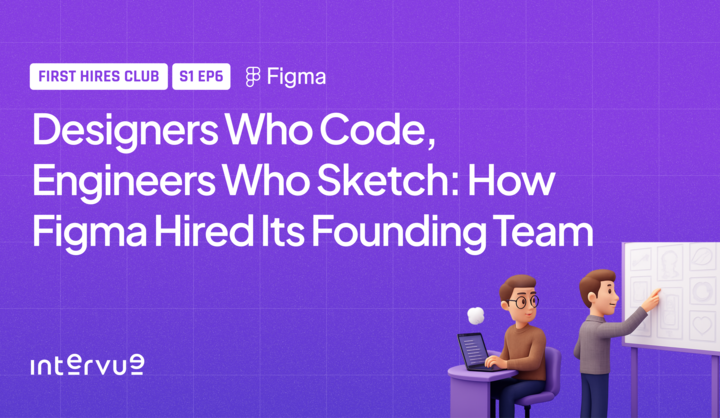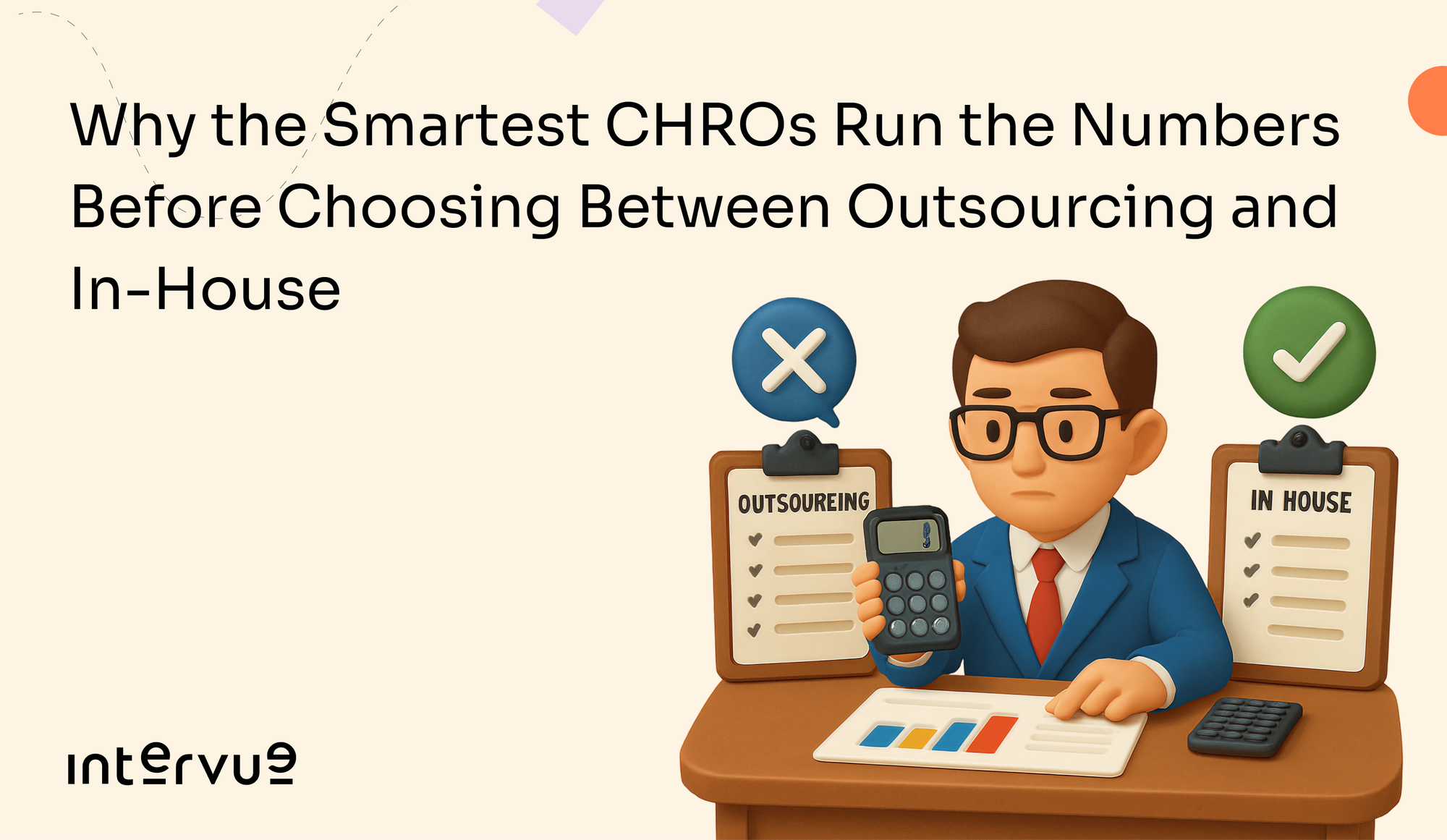Future of Hiring: AI Transforming Efficiency and Experience
The rise of artificial intelligence (AI) has transformed various industries, revolutionizing processes, enhancing efficiency, and driving innovation. In sectors like healthcare

The rise of artificial intelligence (AI) has transformed various industries, revolutionizing processes, enhancing efficiency, and driving innovation. In sectors like healthcare, AI aids in diagnostics and personalized treatment plans, while in finance, it optimizes trading strategies and risk assessment.
Retail utilizes AI for personalized recommendations and inventory management, while manufacturing benefits from predictive maintenance and process optimization.
In recent years, AI has also made significant strides in revolutionizing the recruitment and hiring process. Traditional methods are being supplemented or replaced by AI-powered systems that streamline candidate sourcing, screening, and even interviewing. Want to know more? Let's read this blog!
The Evolution of Hiring Processes
Traditional methods of hiring and their limitations:
- Reliance on human judgment introduces biases based on factors like gender, race, or socio-economic background.
- Manual processes are time-consuming and labor-intensive, leading to delays in candidate screening and feedback.
- Difficulty handling large volumes of applicants results in inefficiencies and missed opportunities to identify top talent.
Introduction of AI in recruitment and its benefits:
- AI-powered solutions automate and optimize various aspects of the hiring process.
- Swiftly analyze large volumes of resumes, identify qualified candidates, and conduct initial screenings based on predefined criteria.
- Enhance efficiency by accelerating the candidate selection process.
- Scalability allows AI-powered solutions to handle high volumes of applicants without sacrificing quality or speed.
Shift towards AI-powered interviews: efficiency, scalability, and potential biases:
- AI-powered interviews streamline the interview process, improving efficiency.
- Scalable solutions can handle a high volume of interviews simultaneously.
- Potential biases in AI algorithms, derived from historical data, may lead to unfair outcomes for certain candidates.
- Proactive measures, such as ongoing monitoring, algorithm refinement, and regular audits, are necessary to mitigate biases and ensure ethical use of AI in recruitment.
Understanding AI Interviewing Systems
AI interviewing systems leverage advanced technologies to automate and optimize various aspects of the interview process. Here's an overview of how they work and the components involved:
- Natural Language Processing (NLP):
- NLP enables AI systems to understand and process human language, including spoken and written communication.
- It allows the system to analyze resumes, job descriptions, and candidate responses during interviews.
- Machine Learning Algorithms:
- Machine learning algorithms power the intelligence of AI interviewing systems.
- These algorithms learn from vast amounts of data to identify patterns, make predictions, and improve over time.
- They enable tasks such as candidate screening, skill assessment, and interview question generation.
- Automated Screening and Scheduling:
- AI systems can automatically screen resumes and applications based on predefined criteria, saving time for recruiters.
- They can also schedule interviews, coordinate availability between candidates and interviewers, and send reminders.
- Virtual Interviews:
- AI interviewing platforms offer virtual interview capabilities, allowing candidates to participate in interviews remotely.
- This can include video interviews, voice-based interviews, or text-based chat interviews conducted by AI-powered chatbots.
- Assessment and Evaluation:
- AI systems assess candidates' skills and qualifications through various means, such as online assessments, coding challenges, or simulations.
- They evaluate candidates' responses during interviews, analyzing factors like communication skills, problem-solving abilities, and cultural fit.
- Examples of popular AI interview platforms and their features:
- HireVue:
- HireVue offers a video interviewing platform powered by AI.
- Features include automated scheduling, on-demand interviews, and AI-driven analysis of candidate responses for insights on traits like empathy and communication skills.
- Talview:
- Talview provides an AI-powered recruitment platform with features such as automated resume screening, video interviewing, and proctoring for online assessments.
- Its AI algorithms analyze facial expressions, voice tonality, and language to assess candidate suitability.
- Mya Systems:
- Mya Systems offers an AI recruiting assistant that engages with candidates through text-based chat interviews.
- It handles initial candidate screening, answers questions, and provides updates on application status, enhancing candidate experience and reducing recruiter workload.
Pros and Cons of AI Interviewing
Pros of AI Interviewing:
- Efficiency: AI interviewing systems can automate repetitive tasks such as resume screening and scheduling, saving time for recruiters and candidates.
- Scalability: AI systems can handle a large volume of interviews simultaneously, allowing organizations to efficiently manage recruitment processes during periods of high demand.
- Consistency: AI ensures a standardized interview process, reducing variability in candidate evaluation and promoting fairness.
- Data-driven insights: AI algorithms can analyze candidate responses and behaviors to provide data-driven insights on qualities such as communication skills, problem-solving abilities, and cultural fit.
- Candidate experience: AI-powered interviews can offer convenient scheduling options and personalized interactions, enhancing the overall candidate experience.
Cons of AI Interviewing:
- Bias and fairness concerns: AI algorithms may inherit biases present in training data, leading to unfair outcomes for certain candidates based on factors like gender, race, or socio-economic background.
- Lack of human touch: AI interviewing systems may lack the empathy and nuanced understanding of human behavior that human interviewers possess, potentially leading to misunderstandings or misinterpretations of candidate responses.
- Technical issues: AI systems may encounter technical glitches or errors during interviews, disrupting the candidate experience and potentially impacting assessment accuracy.
- Privacy and data security risks: AI interviewing platforms collect and process sensitive personal data from candidates, raising concerns about data privacy and security breaches.
- Limited context understanding: AI systems may struggle to understand contextual nuances, sarcasm, or non-verbal cues during interviews, potentially leading to misinterpretations of candidate responses.
Best Practices for Implementing AI Interviews
Implementing AI interviews requires careful planning and execution to ensure fairness, efficiency, and effectiveness. Here are some best practices to consider:
- Define clear objectives: Clearly define the goals and objectives of implementing AI interviews, such as improving efficiency, standardizing evaluation criteria, or enhancing candidate experience.
- Address bias: Take proactive measures to identify and mitigate biases in AI algorithms and data sources. Regularly audit and monitor the system for fairness and transparency.
- Transparency: Provide transparency to candidates about the use of AI in the interview process. Clearly communicate how AI is being used, what data is being collected, and how it will be used to evaluate candidates.
- Candidate experience: Design AI interviews with the candidate experience in mind. Ensure that the interview process is user-friendly, accessible, and respectful of candidates' time and privacy.
- Training and education: Train recruiters, hiring managers, and other stakeholders on how to effectively use AI interviewing tools and interpret the results. Provide guidance on how to handle situations where AI may not accurately capture candidate qualifications or behaviors.
- Human oversight: Incorporate human oversight into the AI interviewing process. While AI can streamline certain tasks, human judgment and intuition are still valuable for assessing candidate fit and understanding nuanced responses.
- Feedback loop: Establish a feedback loop to continuously improve the AI interviewing system based on user feedback, candidate experience data, and performance metrics.
- Data security and privacy: Ensure compliance with data protection regulations and implement robust security measures to protect candidate data collected during the interview process.
- Pilot testing: Conduct pilot tests of the AI interviewing system with a small group of candidates and stakeholders to identify any issues or areas for improvement before full-scale implementation.
- Regular evaluation: Regularly evaluate the performance and effectiveness of the AI interviewing system against predefined metrics and objectives. Make adjustments as needed to optimize the system's performance and ensure alignment with organizational goals.
The Future of AI in Hiring
Predictions for the future role of AI in recruitment:
- Increased automation: AI will play an even larger role in automating various aspects of the recruitment process, from resume screening to candidate outreach and scheduling.
- Personalization: AI will enable more personalized candidate experiences by tailoring job recommendations, interview questions, and communication based on individual candidate profiles and preferences.
- Predictive analytics: AI-powered recruitment platforms will leverage predictive analytics to forecast hiring needs, identify passive candidates, and predict candidate success based on historical data and performance metrics.
- Bias reduction: Continued efforts will be made to reduce biases in AI algorithms and ensure fairness and diversity in the recruitment process. This may involve the development of bias detection tools, algorithmic auditing, and bias mitigation strategies.
- Skills-based hiring: AI will facilitate a shift towards skills-based hiring, where candidates are evaluated based on their relevant skills and capabilities rather than traditional qualifications or pedigree.
Summing It Up
In conclusion, the integration of AI in recruitment has brought significant advancements, streamlining processes, enhancing efficiency, and improving candidate experiences. While AI-powered interviews offer numerous benefits, including scalability and data-driven insights, addressing biases and ensuring transparency remain crucial. With careful implementation and continuous improvement, AI promises to play an increasingly vital role in shaping the future of hiring processes.



